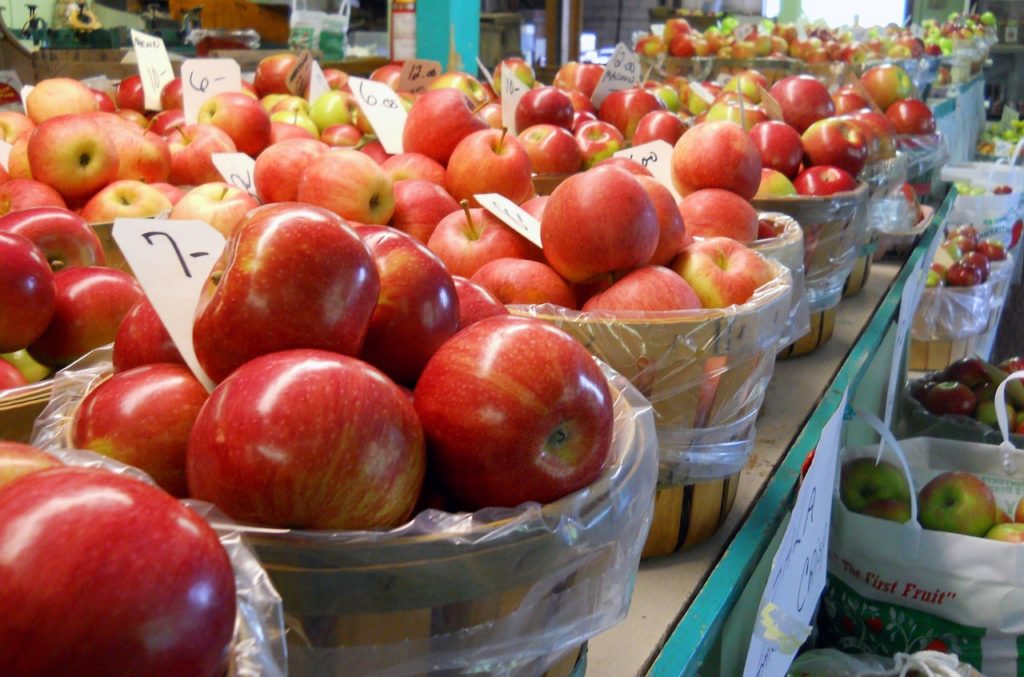How to start homesteading in Rhode Island

If you investigate how to start homesteading in Rhode Island, you may soon find that the densely-populated, tiniest state in the union has little arable land to spare. Though there are good soils and growing conditions are more forgiving than many locations in the Northeast, farmland in the Ocean State can be prohibitively expensive for new farmers and homesteaders.
The local food scene is strong, though, and the state works hard to find ways to support and encourage local producers in order to both promote healthy eating habits among its constituents and attract tourists with its burgeoning “foodie” culture.
With the network of available state and non-profit programs specifically for farmers looking for land and the proximity to local markets, you still may be considering how to start homesteading in Rhode Island despite the costs. Here are the basics of what you need to know.
Buying farmland in Rhode Island
Rhode Island farmland is the most expensive in the nation. According to the United States Department of Agriculture (USDA), the average cost per acre in 2017 was $13,800 for farm real estate, including land and buildings. According to the USDA’s 2018 State Agriculture Overview, Rhode Island has 60,000 acres of farmland spread out over 1,100 farms. The average farm size is 55 acres.
However, the state of Rhode Island is looking for ways to ameliorate these costs for new farmers and continue bolstering their local food systems.
For example, the Rhode Island Department of Environmental Management’s Division of Agriculture has a Local Agriculture and Seafood Act Grant Program to support the growth, development, and marketing of local food and seafood in Rhode Island. The program provides financial assistance to support the entry, growth and sustainability of small or beginning agriculture producers, foster partnerships among Rhode Island producers and producer-supporting organizations, connect producers to sales channels with clearly defined markets and facilitate farm transition planning and implementation. The grant program is connected to Rhode Island’s Food Strategy, Relish Rhody.
If you already own farmland in Rhode Island but are struggling to keep it viable, Rhode Island’s Farmland Preservation Program helps by purchasing development rights from farmers, which enables them to retain ownership of their property while protecting the lands for agricultural use. At the same time, it provides farmers with a financially competitive alternative to development. This program is operated by the Agricultural Land Preservation Commission.
Rhode Island’s Department of Environmental Management is also working Farmland Access Program, which allows the Department to partner with the State’s Agricultural Land Preservation Commission to purchase, protect it and affordably sell farmland to farmers looking for land. The program is currently in the start-up phase, so stay tuned for future farmland purchase opportunities.
Growing crops in Rhode Island
Rhode Island’s hardiness zones range from 5b in the northern reaches of the state to 7a in the southeastern tip. Most of the state is comprised of zones 6a and 6b, with average minimum winter temperatures between -10 and 0 degrees Fahrenheit.
Cold weather crops like lettuce, radishes, peas, corn and root crops like carrots can be sown directly outdoors. Note that crops that prefer cool environments will shrivel in the summer heat, so they should be sown as soon as the snow melts, and may enjoy a second planting at the beginning of fall.
Cold hardy cole crops like Brussel sprouts, broccoli, cauliflower and kale will grow well in Rhode Island, and perennial asparagus will grow back year to year.
For other, less hardy crops like tomatoes, eggplants, peppers and cucumbers, Rhode Island gardeners will likely have to start seeds indoors during March and April to transplant outside in May or June. You can also consider using season extenders to extend your growing season beyond the last frost date.
If you are interested in growing fruit trees, apples are also one of the top commercial crops in Rhode Island. The Rhode Island Greening is an American apple variety and the official fruit of the state of Rhode Island. Be warned that apple trees take four to five years to produce their own fruit.
There are several different types of soil present throughout the tiny state, but Narragansett soil is the official state soil of Rhode Island. The silty, loamy soil is productive for agriculture and covers about 12,000 acres of Rhode Island’s land.
A soil test will help to determine what soil you have on your farm or homestead. Soil tests are conducted by University of Rhode Island Master Gardener volunteers, and can be sent to the University of Connecticut Soil Lab or the University of Massachusetts Soil & Plant Nutrient Testing Laboratory for a full analysis for a nominal fee.
Raising animals in Rhode Island
Rhode Island requires entry permits on camelids, cattle, goats, horses, sheep, swine and poultry before they are transported into state.
The Rhode Island Livestock Welfare and Care Standards 2014 serve as the minimum care standards for all livestock that are kept in the state. The standards include specifications for pen size and cleanliness, distribution of feed and water, and livestock handing, as well as humane management of euthanasia, transport and butchering. The standards are enforced by the Livestock Welfare and Care Standards Advisory Council.
Livestock testing is conducted by the Department of Environmental Management’s Division of Agriculture Animal Health staff to ensure the health of livestock in the state and to ensure public health when consuming animal products.
However, the state will not perform testing for producers who wish to have their animals tested for the purpose of interstate movement for sale or show. In such instances, a federally accredited veterinarian must perform official testing, and the Rhode Island Veterinary Medical Association may offer assistance in finding one.
Rhode Island also has rules governing damage caused by animals and their impoundment. Horses, bulls, rams, boars and goats are not permitted to “run at large” in Rhode Island, which means the animal has escaped its enclosure and is wandering free. Even if the animal’s escape is not your fault, the owner can be fined and be liable for all damages done by the animal.
Selling food in Rhode Island
 Genevieve Belcher from Pixabay
Genevieve Belcher from PixabayThere are 25 farmers’ markets listed on the Rhode Island Farmers Market Directory website.
In Rhode Island, a license is not required when selling whole, uncut produce or honey at a farmers’ market.
Other farm home food manufacture is limited to the production of non-potentially hazardous food and foods that do not require refrigeration, like jams, jellies, preserves and vinegars; double-crust pies made with local fruit; yeast breads; maple syrup from the sap of trees on the farm or of trees within a 20 mile radius of the farm; candies and fudges; and dried herbs and spices.
In order to sell these food products, the seller must register for a Farm Home Food Manufacture certification. To qualify, a farm owner must already generate a minimum of $2,500 in annual gross sales of other agricultural products. The applicant must mail and an application, registration fee and other materials — including water test results, a letter from a building official stating that the kitchen meets minimum housing standards and a list of their food products — to the Rhode Island Office of Food Protection. The registration fee for Farm Home Food Manufacture is $65, which needs to be paid annually
To sell eggs in Rhode Island, the eggs must be kept at 41 degrees Fahrenheit or below (they can be stored in a cooler with ice as long as a thermometer indicates the temperature requirements are met).
All shell eggs sold or offered for sale in this state for human consumption shall be labeled with the grade and size designation as set forth in the Rhode Island consumer grades: AA-A-B-C. The standards for quality of individual eggs shall be established by the director of environmental management under the provisions, and the means used in determining these grades and standards shall be specified by regulation issued by the director of environmental management.
The correct size and grade designation needs to appear in clearly legible letters on the top or side of the exterior of any container in which the eggs are offered for sale. Terms like “fresh eggs,” “strictly fresh eggs” and “new-laid eggs” cannot be used to advertise eggs in Rhode Island that do not meet the minimum requirements for Rhode Island consumer grade A or better. There are penalties for such false advertising.
An invoice stating both the correct size and the correct quality grade designations is also needed for each delivery of eggs to a retailer. The invoice should also include the name and address of both buyer and seller and the date of the sale.
Rhode Island organizations for farmers
- Young Farmer Network of Southeastern New England
- Farm Fresh Rhode Island
- Rhode Island Raised Livestock Association
- Southside Community Land Trust
- Northeast Organic Farming Association of Rhode Island
- Rhode Island Farm Bureau
- University of Rhode Island Cooperative Extension
How difficult is it to start homesteading in Rhode Island?
Compared to other states, it is pretty challenging to start homesteading in Rhode Island. Aside from the usual challenges of starting a new farm or homestead, the small, expensive state has little land to spare for new farmers and landowners. If you have your heart set on homesteading in the Ocean State, make sure you work closely with state agencies and local organizations to keep the endeavor viable for you.
